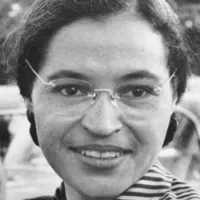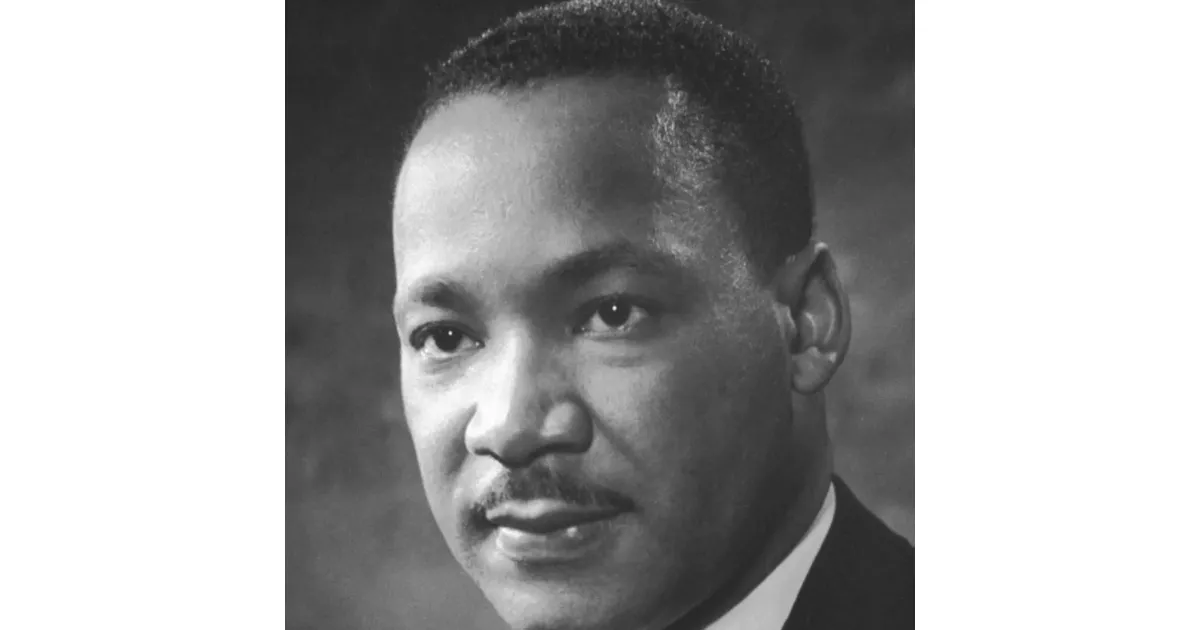Controversies are a part of history. Explore the biggest scandals linked to Martin Luther King Jr..
Martin Luther King Jr. was a pivotal leader in the American civil rights movement from 1955 until his assassination in 1968. As a Baptist minister and political philosopher, he championed civil rights for people of color through nonviolent resistance and civil disobedience. His activism targeted Jim Crow laws and other discriminatory practices, aiming to achieve equality and justice for all Americans. King's commitment to nonviolence and his powerful rhetoric made him an iconic figure in the fight against racial segregation and discrimination.
1957: FBI Tracking of King
In 1957, J. Edgar Hoover directed the FBI to track Martin Luther King Jr., due to his suspicion of potential communist influence in social movements.
December 1963: FBI's Intensive Campaign to 'Neutralize' King
From December 1963 until his death in 1968, Martin Luther King Jr. was the target of an intensive campaign by the Federal Bureau of Investigation to 'neutralize' him as an effective civil rights leader.
1963: FBI Concerns Over Stanley Levison's Influence
Due to the relationship between Martin Luther King Jr. and Stanley Levison, the FBI feared that Levison was working as an "agent of influence" over King, despite its own reports in 1963 indicating that Levison had left the Communist Party.
1963: Collaboration in the March on Washington
In 1963, Martin Luther King Jr. collaborated in the March on Washington, organized by Bayard Rustin. This role was controversial because King acceded to President Kennedy's wishes to change the march's focus. Kennedy, initially against the march due to concerns about civil rights legislation, later sought to ensure its success by mobilizing additional support.
1963: FBI Wiretapping Authorization
In the fall of 1963, the FBI received authorization from Attorney General Robert F. Kennedy to proceed with wiretapping of Martin Luther King Jr.'s phone lines, purportedly due to his association with Stanley Levison. The Bureau informed President John F. Kennedy.
1963: FBI's COINTELPRO Investigation
Starting in 1963, J. Edgar Hoover and the FBI began targeting King with COINTELPRO, investigating him for alleged communist ties and spying on his personal life.
November 4, 1964: Washington Post Article on Invitation to Soviet Union
A Washington Post article dated November 4, 1964, claimed that Martin Luther King Jr. was invited to the Soviet Union, leading the CIA to investigate possible links between King and Communism. Ralph Abernathy, as spokesman for King, refused to comment on the source of the invitation.
November 1964: Support for Scripto Factory Strike
In November 1964, Martin Luther King Jr. supported a labor strike by workers at the Scripto factory in Atlanta, leading the SCLC to organize a nationwide boycott of Scripto products to elevate the labor dispute. The boycott ended on December 24, 1964.
1964: Questionable FBI Recording from the Willard Hotel
In 1964, an audio recording from the Willard Hotel was made by the FBI, and others, including Mrs. King, have said they did not hear Martin's voice on it. The added summary was four layers removed from the actual recording. This supposedly new information comes from an anonymous source in a single paragraph in an FBI report.
1965: Denial of Communist Connections in Playboy Interview
In a 1965 Playboy interview, Martin Luther King Jr. adamantly denied having any connections to communism, stating that "there are as many Communists in this freedom movement as there are Eskimos in Florida." Hoover replied by calling King "the most notorious liar in the country".
August 5, 1966: March through Marquette Park
On August 5, 1966, a march through Marquette Park was met by thrown bottles and screaming throngs. Martin Luther King Jr. negotiated an agreement with Mayor Richard J. Daley to cancel a march to avoid violence. King was hit by a brick during one march.
April 4, 1967: "Beyond Vietnam: A Time to Break Silence" Speech
On April 4, 1967, Martin Luther King Jr. delivered a speech titled "Beyond Vietnam: A Time to Break Silence" at the New York City Riverside Church, criticizing the U.S.'s role in the Vietnam War and connecting the war with economic injustice.
April 15, 1967: Speaking at Anti-War March
On April 15, 1967, Martin Luther King Jr. spoke at an anti-war march from Manhattan's Central Park to the United Nations, organized by the Spring Mobilization Committee to End the War in Vietnam. At the U.N. King brought up issues of civil rights and the draft.
1967: CIA Document on King's Role in Chicago
A 1967 CIA document downplayed Martin Luther King Jr.'s role in the "black militant situation" in Chicago, with a source stating that King "sought at least constructive, positive projects."
1967: SCLC Listed as a Black Nationalist Hate Group
In 1967, J. Edgar Hoover listed the SCLC as a black nationalist hate group, with instructions to exploit organizational and personal conflicts to disrupt, ridicule, or discredit the group.
1967: Increasing Anti-War Efforts
In 1967, James Bevel convinced Martin Luther King Jr. to become more active in the anti-war effort, but King was not fond of the hippie culture developed from the anti-war movement.
January 13, 1968: Call for March on Washington
On January 13, 1968, Martin Luther King Jr. called for a large march on Washington against "one of history's most cruel and senseless wars".
1968: FBI's Intensive Campaign to 'Neutralize' King
From December 1963 until his death in 1968, Martin Luther King Jr. was the target of an intensive campaign by the Federal Bureau of Investigation to 'neutralize' him as an effective civil rights leader.
1968: Consideration of Presidential Run
In 1968, Allard K. Lowenstein, William Sloane Coffin and Norman Thomas attempted to persuade Martin Luther King Jr. to run against President Johnson in the 1968 presidential election, but King decided against it.
1968: King's Assassination in Memphis
In 1968, Martin Luther King Jr. was assassinated in Memphis, Tennessee, while planning the Poor People's Campaign.
1968: Memphis Police Surveillance and King's Assassination
In the spring of 1968, the Memphis Police Department spied on Martin Luther King Jr. as he supported striking sanitation workers. Police officers were stationed in a fire station across from the Lorraine Motel, next to James Earl Ray's boarding house, to keep King under surveillance. The antagonism between King and the FBI, the lack of an all points bulletin to find the killer, and the police presence nearby led to speculation that the FBI was involved in the assassination.
March 10, 1969: James Earl Ray confesses to King's murder
On March 10, 1969, James Earl Ray confessed to the murder of Martin Luther King Jr., though he recanted this confession three days later. He pleaded guilty to avoid the death penalty and was sentenced to a 99-year prison term.
1975: Church Committee Investigation Findings
In 1975, the Church Committee, a U.S. Congress investigation, found that from December 1963 until his death in 1968, Martin Luther King Jr. was the target of an intensive campaign by the Federal Bureau of Investigation to 'neutralize' him as an effective civil rights leader.
1976: FBI Acknowledgment of No Evidence of Communist Involvement
By 1976, the FBI acknowledged that it had not obtained any evidence that Martin Luther King Jr. himself or the SCLC were actually involved with any communist organizations, despite extensive surveillance.
1977: Sealing of FBI Surveillance Recordings and Transcripts
In 1977, Judge John Lewis Smith Jr. ordered the recorded audiotapes and written transcripts resulting from the FBI's electronic surveillance of Martin Luther King Jr. between 1963 and 1968 to be sealed from public access in the National Archives until 2027.
1989: Ralph Abernathy's autobiography
In 1989, Ralph Abernathy's autobiography "And the Walls Came Tumbling Down" was released where he stated that King had a "weakness for women".
October 1991: Academic Inquiry on Dissertation Plagiarism
In October 1991, an academic inquiry concluded that portions of Martin Luther King Jr.'s doctoral dissertation had been plagiarized. Despite this finding, the committee recommended that his doctoral degree not be revoked, as the dissertation still made an intelligent contribution to scholarship.
1997: Dexter Scott King Meets with James Earl Ray
In 1997, King's son Dexter Scott King met with James Earl Ray and publicly supported Ray's efforts to obtain a new trial regarding the assassination of Martin Luther King Jr.
1998: James Earl Ray dies
In 1998, James Earl Ray, the confessed assassin of Martin Luther King Jr., died at age 70 while still maintaining his innocence regarding the assassination.
1999: Wrongful Death Lawsuit Ruling
In 1999, a wrongful death lawsuit ruling implicated unspecified "government agencies" as co-conspirators in King's assassination.
2000: U.S. Department of Justice Investigation
In 2000, the U.S. Department of Justice completed its investigation into Loyd Jowers' claims regarding the assassination of Martin Luther King Jr. and found no evidence of conspiracy. The investigation report recommended no further investigation unless new reliable facts are presented.
2002: Ronald Denton Wilson's Claim
In 2002, The New York Times reported that church minister Ronald Denton Wilson claimed his father, Henry Clay Wilson, assassinated Martin Luther King Jr. Wilson provided no evidence to back up his claims.
2003: Pepper publishes book about MLK assassination
In 2003, Pepper published a book about the investigation and trial of James Earl Ray in his bid for a trial concerning the death of Martin Luther King Jr.
2004: Jesse Jackson statement
In 2004, Jesse Jackson made a statement regarding the death of Martin Luther King Jr.
2008: Jerry Ray Interview
In 2008, Jerry Ray, the younger brother of James Earl Ray, claimed in an interview with CNN that James was smart and was sometimes able to get away with armed robbery.
2014: Release of Full FBI Letter and Yale Professor's Analysis
Upon the release of the full FBI letter in 2014, Yale history professor Beverly Gage noted in a New York Times article that the claim that the FBI "simply meant to push King out, not induce suicide" was a possibility. Gage points out that another uncovered portion of the note praises "older leaders" like the N.A.A.C.P. executive director Roy Wilkins, urging King to step aside and let other men lead the civil rights movement."
2017: Declassification of CIA Files
In 2017, CIA files were declassified, revealing that the agency was investigating possible links between Martin Luther King Jr. and Communism following a 1964 Washington Post article.
May 2019: Emergence of FBI File Alleging King's Involvement in Sexual Assault
In May 2019, an FBI file emerged alleging that Martin Luther King Jr. "looked on, laughed and offered advice" as one of his friends raped a woman. Historians have dismissed this evidence as highly unreliable.
January 23, 2025: Declassification of Assassination Records
On January 23, 2025, President Donald Trump signed an Executive Order declassifying the records concerning the assassination of Martin Luther King Jr.
2027: Scheduled Release of FBI Surveillance Recordings
In 1977, Judge John Lewis Smith Jr. ordered the recorded audiotapes and written transcripts resulting from the FBI's electronic surveillance of Martin Luther King Jr. between 1963 and 1968 to be sealed from public access in the National Archives until 2027.
Mentioned in this timeline

Donald John Trump is an American politician media personality and...

John F Kennedy JFK was the th U S President...

Jesse Jackson is an American civil rights activist politician and...

Rosa Parks an American civil rights activist is renowned for...
The Union of Soviet Socialist Republics USSR existed from to...
India officially the Republic of India is a South Asian...
Trending

57 minutes ago Selena Gomez's Spiced-Plum Manicure and TikTok Clone Theory Spark Buzz

57 minutes ago Kit Harington and Sophie Turner Gag After On-Screen Kiss in New Movie

57 minutes ago Trump administration updates, Iran nuclear efforts, and White House controversies unfold.

58 minutes ago Dario Amodei Highlights India's Central Role in Shaping AI's Future at AI Summit.

2 hours ago Yoon Suk Yeol, South Korean ex-president, receives life sentence for insurrection and martial law.

4 hours ago Maya Hawke and Christian Lee Hutson celebrated wedding with Stranger Things cast present.
Popular

Jesse Jackson is an American civil rights activist politician and...
Randall Adam Fine is an American politician a Republican who...

Pam Bondi is an American attorney lobbyist and politician currently...

Barack Obama the th U S President - was the...

Martin Luther King Jr was a pivotal leader in the...

Ken Paxton is an American politician and lawyer serving as...


